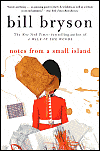
Daniel Kalder's
Lost Cosmonaut is funny and... weird. A little weird. Not too much. As travel writing goes, it's certainly unique. You can read a dozen travel books about Tuscany or the French countryside or Ireland. But there is only one travel book about Udmurtia, or Mari-El, or Kalmykia. This is that book. Certainly you aren't burning to travel to Udmurtia. If you know where Udmurtia is on a map, you are one of a very few people. If you even know what country it's in you're doing better 99%+ of the population of the world. I imagine some Russians are unaware of Udmurtia's existence. Hell, some Americans think Idaho is a job description, so I can only imagine what Russians must think of a place like Kalmykia.
The book is divided into four parts. In the first, Kalder travels at the behest of a friend to Tatarstan, at the eastern edge of European Russia, and discovers an utterly unknown place--unknown to most Europeans (or any Westerners)--with significant cultural development all its own that none of us have ever heard of. I'm considering trying to find a recording of music by one of the "18 Great Tatars" Kalder lists in his book, but he says not to bother--you can't find it. It's not there. This is a country that has been utterly lost to the West--and it's in our backyard.
Next Kalder convinced his travelling partners to accompany him to Kalmykia, a province at the edge of European Russia. The Kalmyks are Turks--the name means "left behind" or some such, as this is the portion of a Turkic tribe expelled from this part of Russia 200 years ago who somehow managed not to leave. It's a country with half the population of Baltimore, Maryland, spread out over a wasteland larger than Texas. Kalder wanted to go see nothing--and that's about all there was. Kalmykia is nominally Buddhist, the only such country in Europe, and the leader of the place is a bit of a wackjob who built an entire (vacant) city in the scrub dedicated to chess. Weird stuff.
In the third and fourth parts of the book Kalder traveled alone, first to Mari-El, the only officially pagan area in Europe (though only half the residents are actually Mari, and maybe half of them actually practice the local religion) and apparently a hotbed of the Russian Wives By Mail industry; and then to Udmurtia, a province named after a people who've been all but subsumed by the Russian culture that surrounds them. Both of these sections started off somewhat slow--in part because Kalder is travelling alone, in part because they start off the same way as the previous two. The fourth section, which by the end was perhaps my favorite, started VERY slow--a fact Kalder acknowledges in a section detailing his attempt to spend the entire trip in his hotel room (he doesn't succeed).
By the latter sections of the book, though, Kalder admits that he had already decided he was working on a book--he wasn't just travelling for the sake of it. Although this hurts the illusion a bit--I wanted to believe he was just visiting these places because he was an eccentric--the knowledge forced Kalder's hand a bit, so that he had to actually get out of the hotel room, set a goal, find something new, figure out what he was looking for in these places. It gave form to his narrative, and though he book would have rather different had it been written without this form (but just by an eccentric Scotsman with a taste for cold weather and poor countries), in the end it made the book feel more whole.
The section on Udmurtia is particularly interesting, as here is a place with a long history and its own culture and language, that has been completely absorbed by Russia. 200 years ago such a place would swiftly lose that language and culture and it's history would have been rewritten, but in the modern era you can't just wipe a culture off the face of the map. Yet this is what's happening--and it's the Udmurt who are allowing it to go on. Kalder makes some interesting points: there may be 1000 years of Udmurt history, but nobody--literally--knows what it is anymore; the Udmurt language was so frighteningly complex that, given the chance to speak Russian instead (itself a complex and difficult language) today's Udmurt leap at the chance; Udmurt cultural traditions in many cases were similar enough to--and sometimes were added to--Russian culture that the distinctions have mostly blended into nothingness. This is a country that by rights should be totally assimilated into the Russian mass, yet that will never be allowed to happen. There will always be someone working to preserve the language, guessing at what the cultural traditions once were, and there probably never be anyone to care. It's kind of sad.
The other sections are not so sad, but they are melancholy in their own way. Kalder is a good guide to such places. He doesn't really laugh at them, which would get tiresome (the dust-jacket copy calls him a "Bill Bryson with Tourette's," which is an insult to both Kalder and to Tourette's patients, and Kalder is in no way as cynical or elitist as Bryson can be), but he does keep a sense of humor about him and about the places he's visited. They're not very nice, after all.
This is genuine travel writing, unlike
The Sex Lives of Cannibals or
Together Alone, so I can easily say it's the best travel writing I've read all year. I just don't want to compare it to the other two; all three are vastly entertaining and plenty diversionary.




